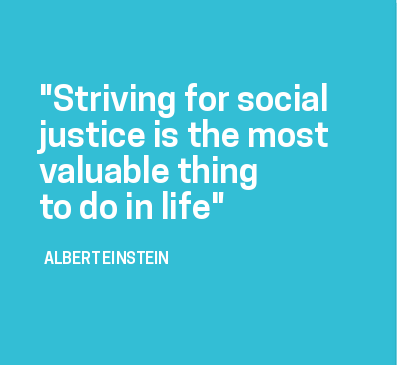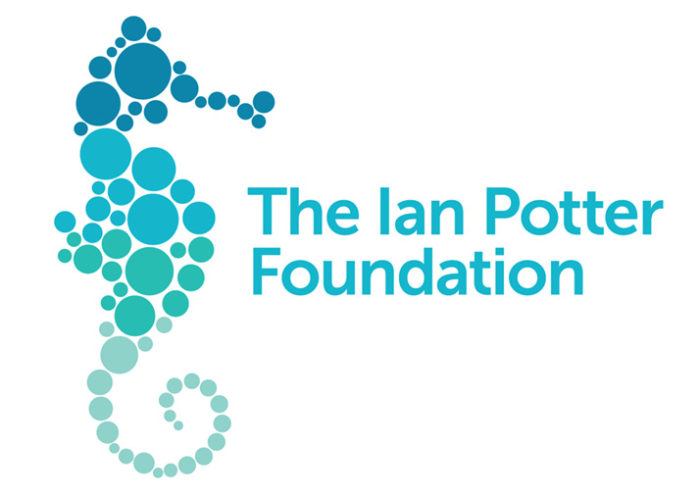Our Reach
We are committed to being flexible, innovative and responsive to address the complex legal needs of our clients and communities across a broad geographical area.
Our Stories
Aaron's story

Aaron, a single parent, aged 40, was struggling financially and had fallen behind in his rent. His landlord took action in VCAT for rent arrears and possible possession. Aaron represented himself and managed to negotiate a resolution whereby the landlord allowed him to remain in the property if he submitted to a payment plan to cover the arrears. Unfortunately, for a variety of reasons, Aaron failed to comply with the payment arrangement and the landlord renewed proceedings. Aaron now owed in excess of $4,000
in unpaid rent.
When our duty advocate arrived at VCAT she was alerted by court security staff that there was a client who was highly agitated and would most likely require assistance. Aaron, who was accompanied by his mother, was suffering from some serious mental health issues. He was too unwell to provide clear instructions but gave authority for his mother to speak on his behalf.
Our advocate liaised with the VCAT registrar who suggested that arrangements be made for the hearing to proceed as soon as possible. Our advocate contacted the property manager acting for the landlord, who kindly agreed to be there within half an hour.
With our advocate acting on behalf of Aaron, the parties negotiated that the tenancy would come to an end within a week. A VCAT order was made accordingly by consent. The property manager advised that in the circumstances the landlord would not be pursuing the outstanding rent arrears.
It is unclear what would have happened if Aaron had not been able to avail himself of our duty service. The excellent negotiating skills of our advocates and their good working relationship with VCAT were definitely in Aaron’s favour. Without the $4,000 rent arrears hanging over his head he can work on getting healthy and caring for his family.
Font Resizer
Aaron's story
Tenant sinking deeper and deeper
Lily's story

Lily 27, recently had her four young children taken into care by the Department of Health and Human Services. She had limited family support and struggled with a number of mental health issues. Lily has experienced family violence from the fathers of her children and was vulnerable to alcohol addiction when self- medicating.
Lily had been charged with a number of driving offences and breach of a Community Corrections Order. Lily instructed that she wanted to plead guilty to the charges. As she had prior offences and was facing the possibility of being sent to prison she was eligible for a grant of legal aid to pay for a barrister to represent her and for the completion of a psychological report. One of our generalist lawyers completed the application for legal aid and put together the brief to counsel.
The barrister appeared for Lily at court and argued that Lily’s offending was influenced by her mental health and substance abuse, which arose from her own very traumatic childhood. The Magistrate took into account Lily’s circumstances as presented by counsel and whilst satisfied that Lily was guilty, felt that a different approach was needed to prevent further contravention of orders. This included cancelling her drivers’ licence for six months, cancelling her previous community correction order and placing her on a treatment and support plan. Fines were imposed and she was given two years to pay.
Lily was not only able to avoid jail but could now access a treatment and support plan that would address many of the underlying health and addiction issues she faces. Without support to manage these significant factors it is unlikely Lily would be able to break the cycle of recidivism and take the steps necessary to regain custody of her children.
Font Resizer
Lily's story
Young mother saved from jail term
Jamila's story

A support worker from a family violence outreach service referred Jamila to our duty lawyer at Dandenong Magistrates’ Court.
Jamila is from Bangladesh where she met and married her husband Assad. Shortly after, they came to Australia to live.
Assad helped Jamila transition to life in Australia and the early part of their marriage was happy and relatively incident free. However, once the honeymoon phase of their marriage ended, Assad started to display a short temper and aggressive behavior. Jamila started to be verbally abused by Assad and his behavior became more controlling.
This behavior became worse when Assad lost his job and Jamila became the sole financial provider. Assad also insisted that Jamila send money back to Bangladesh to help support his family.
The situation became more precarious and the verbal abuse escalated into physical abuse, forcing Jamila to contact the police in early 2018.
When Jamila met with our lawyer she was at a mental crossroads, unsure whether to stay in her marriage or end it. On one hand, she was experiencing severe stress and anxiety because of the sustained abuse from Assad which she knew she could not endure; yet part of her still hoped that Assad would attend counselling as recommended by the police and that they could reconcile.
Jamila wanted specific advice about financial matters and property settlement, especially in regard to their jointly owned family home. The mortgage repayments were being solely covered by Jamila.
Our duty lawyer was able to give Jamila both legal and non-legal support that outlined her options and the processes that she would need to go through. The legal advice was provided in a way that Jamila’s safety was prioritised. Jamila was also encouraged to contact the Centre again if she needed further advice or decided to pursue ending the marriage.
Jamila was very appreciative of the advice she was given and she felt both informed and empowered she also “felt clearer about her options.”
Font Resizer
Jamila's story
Informed and empowered
Cho's story

Cho 34 lived with her partner, their baby and her ten year old son from a previous relationship. Cho’s partner would often make horrible threats to her. In one instance, they were driving in the country and he said that if he drove the car off the cliff and jumped out at the last minute she would die and police would think it was
an accident.
Cho was forbidden to use certain household appliances, her partner claiming they were his. He also told her if she left him, he would find her and have her sent back to her homeland and he would get custody of the baby, even though Cho is an Australian citizen. Cho was scared and apprehensive about taking any action. She had a job but did not have the resources to pack up the children and leave.
Our family violence lawyer worked through the options with Cho. It was decided to apply for an intervention order that would remove her partner from the home. An appointment was made with the Court, however prior to the appointment, the violence escalated and it was no longer safe for Cho and the children to stay in the house. Following discussions with our lawyer it was agreed that it would be safer if police applied for the intervention order. Cho’s partner works in IT and had set up her phone – he knew her contacts, had access to her texts and could track her – making any communication risky.
As Cho had never been physically assaulted, our lawyer was concerned that the sense of urgency may not be immediately apparent to the police. In light of this, Cho was accompanied to the police station and our lawyer argued strongly for the police to apply for an intervention order as the risk to Cho was significant. The police agreed and an application was put before an after-hours magistrate who granted an interim order that would remove her partner from the home on a temporary basis. Emergency accommodation was organised for Cho and the children pending service of the order. Cho was able to move back into the home later that day. She has since had to attend court on two occasions with her partner finally consenting to the final order.
Cho now has a job and has created some independence for herself, including moving to a new home. With support and practical advice she was able to take that decisive scary step. She still faces many challenges but at least she isn’t being threatened by her partner anymore.
This outcome was achieved because the Maternal Child & Health nurse sowed the seeds with Cho that she actually could do something to improve her life and then got her to speak with our visiting lawyer at the Health Centre.
Font Resizer
Cho's story
scared by escalating threats from partner
Jenny's story

After experiencing significant childhood trauma, Jenny 38, had always suffered from depression and anxiety. The last five years had been particularly difficult for Jenny, she had lost a few close friends and family members to tragic deaths, separated from a long term partner and moved interstate. These life events had seen a significant deterioration in her mental health.
In the past, Jenny self-medicated with speed and ice to help her cope with her anxiety and depression. However, she has managed to stay clean for the past two years.
When Jenny showed up in our fines clinic the toll fines that she had incurred over the past 5 years had escalated to almost $50,000. At this point, Jenny was understandably distressed and scared about what the future might bring, her fears being compounded by the fact she was heavily pregnant. We worked with Jenny to obtain a letter of support from her psychologist. We appeared on her behalf at the Special Circumstances List at Melbourne Magistrates’ Court and managed to get the outstanding infringement debt reduced by almost 90%. A payment arrangement was made for the remaining $5,000 whereby Jenny is required to pay $100 a month.
Jenny’s severe mental health issues and drug addiction at the time of the offences significantly contributed to her incurring the infringements. Without supporting medical reports, a letter from her psychologist and our lawyer representing her in Court, the outcome for Jenny may have been significantly different.
Font Resizer
Jenny's story
escalating toll fine debt
Louise's story

Louise, 26, sought help and advice from PCLC when her former partner David 28, had applied for parenting orders, in relations to their son, Toby, aged 3.
Prior to this application, David hadn’t seen his son for a year.
Louise and David’s relationship had broken down because of David’s drug use which had led to psychotic episodes. Whilst under the influence of drugs and in
a psychotic state, David had inflicted severe physical violence on Louise.
Louise had sought and been granted a ‘no contact’ intervention order against David because of the serious family violence committed.
In the family law proceedings an interim court order was made whereby David was allowed to spend time with Toby if supervised by David’s own father.
As part of the process of determining the best outcome for both Louise and her son Toby, we arranged a Family Dispute Resolution Conference through Legal Aid. At the time of the conference, David presented as drug free and spoke of his successful rehabilitation. Louise agreed to David seeing Toby unsupervised.
Unfortunately, David started using drugs again and his behavior became erratic and violent. Louise was very concerned about Toby’s safety. Because of the potential risk to Toby, David was notified that he would need to now abide by the original court orders of supervised contact only. However, at the next changeover, David showed up to collect Toby without his own father being present to supervise. David was also agitated and verbally abusive and Louise was very distressed
and concerned.
As the previous arrangements were no longer working, another Family Dispute Resolution Conference was held. In this, the parties agreed that David would have supervised time with Toby at a contact centre. It was further agreed that if David provided 5 clean drug screens within a four month period, his time with Toby could be supervised by a family member. He was also required to undergo a psychological assessment. David and Louise have another Family Dispute Resolution Conference scheduled.
Font Resizer
Louise's story
conflict over child access
Sebastian's story

Sebastian is a 49 year old man of Anglo background. He is gay and has been subjected to ongoing discrimination, including physical and verbal abuse, for most of his life.
The Rooming House Outreach Team visited him at the rooming house where he has lived for the past two years. Altogether, there are thirteen people who live there. Sebastian told us that he was very concerned for his safety as there was significant drug use at the house and drug-related violence. Sebastian has been a drug user in the past but has been clean for the last two years.
Sebastian receives the Newstart Allowance and pays $200 per week rent. As a result, Sebastian has little left over each fortnight for food, medication and other basic requirements. He often goes days without food and is extremely underweight. He also has mental health issues which are compromised by his frequent inability to purchase prescribed medication and as a result of living in a violent, hostile environment.
At our initial meeting, Sebastian presented as extremely depressed and reported that he felt powerless about his current situation. He said that he tries to spend as much time out of the house as he can and visits the local library on a daily basis. When he does return to the rooming house he retreats to his room and stays there, ensuring he has as little contact with other residents.
Sebastian originally lodged an application for public housing in 1998 but the housing authority lost contact with him, forcing him to re-register in 2006. He was recently approved for priority housing but has not yet been allocated accommodation.
As a Newstart recipient with mental health concerns, Sebastian is required to attend a local Job Support provider but reported that they seemed to do very little for him. He wanted to transition to the Disability Support Pension as he believed that his mental health issues make him incapable of successfully undertaking employment.
The Team advocated with his bank to cancel overdrawn fees charged following a reduction in his Centrelink payment, and also provided a food voucher along with
a day trip voucher for public transport so that he could attend a Centrelink medical review.
Since the Team’s involvement, Sebastian has been approved for the Disability Support Pension and his application for public accommodation has been re-prioritised.
Sebastian remains at the rooming house but due to an increased income is able to ensure he has enough to eat, can purchase his medication and can get out and about more often, while he awaits an offer of social accommodation.
Font Resizer
Sebastian's story
Falling between the cracks

Our Year
The past year has been full of many highlights and challenges as our people strived to deliver quality and holistic community legal services. The work we do ensuring access to justice for communities in need is as important today as it ever was because the demand for our services and the complexity of our clients’ matters continue to grow.



















